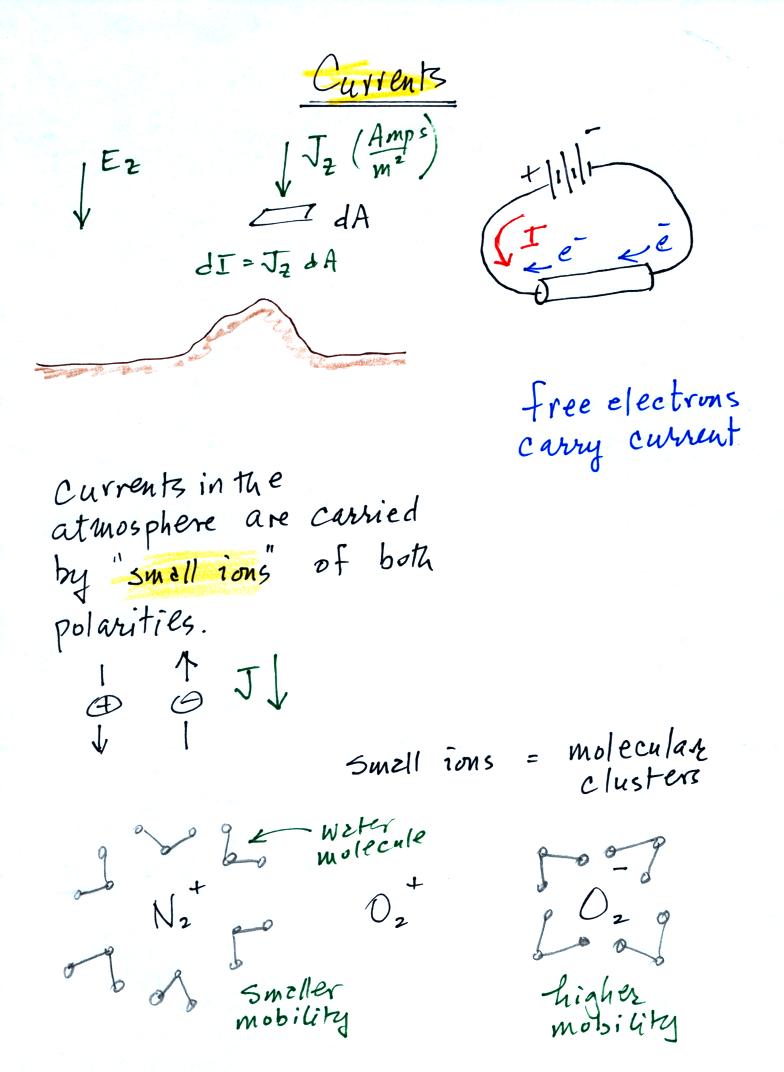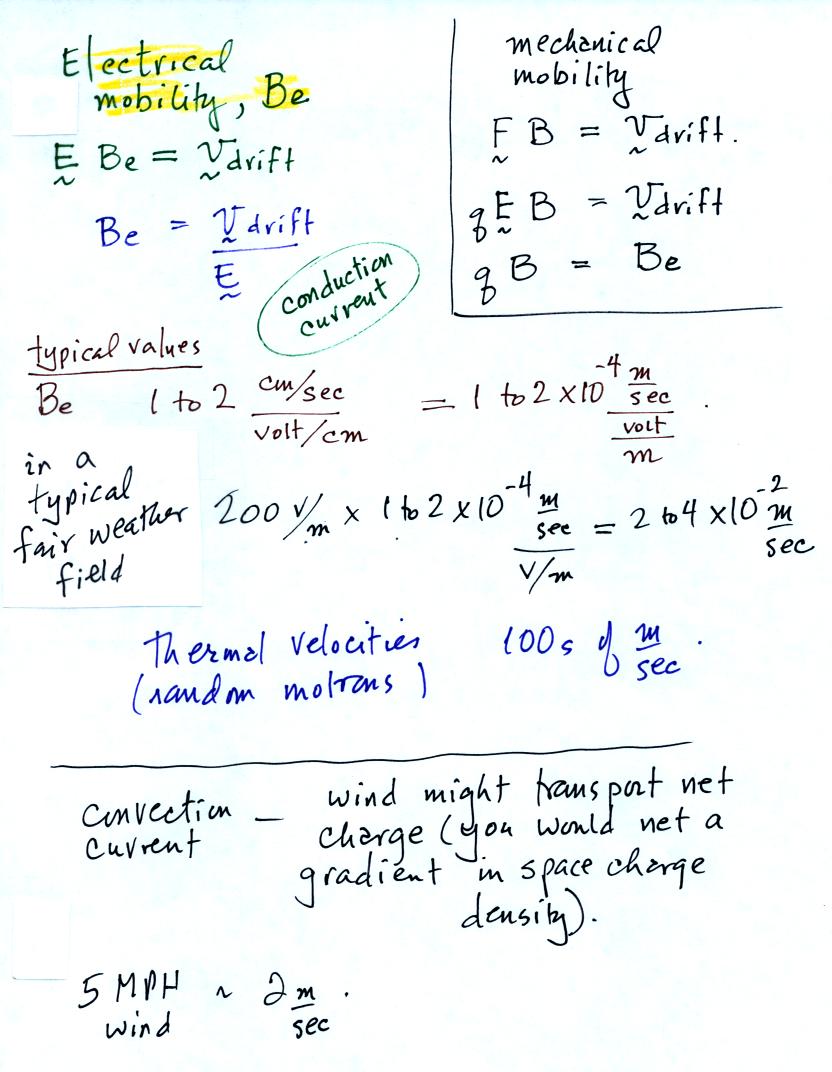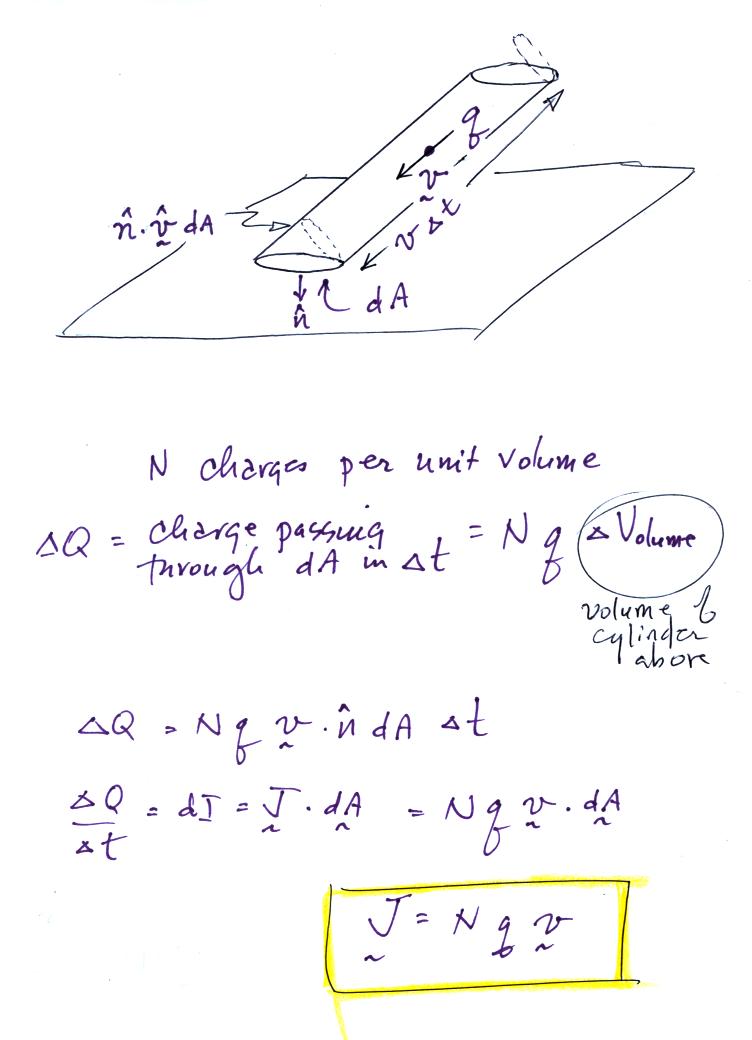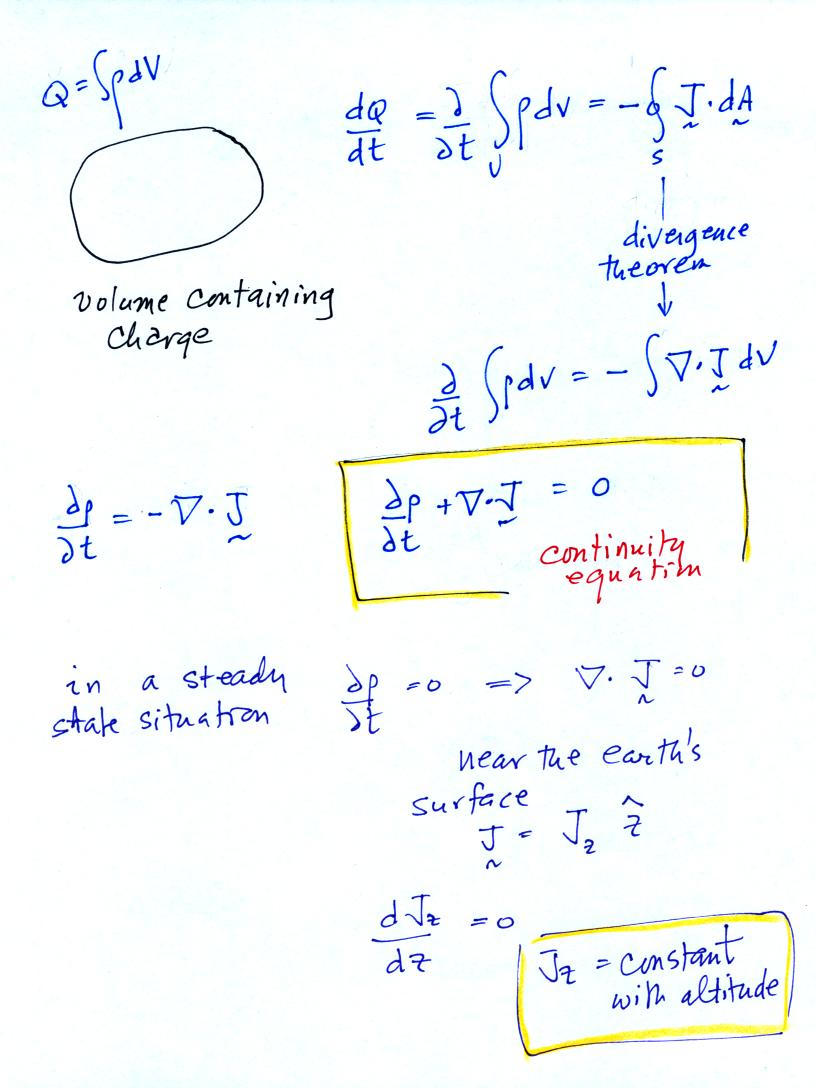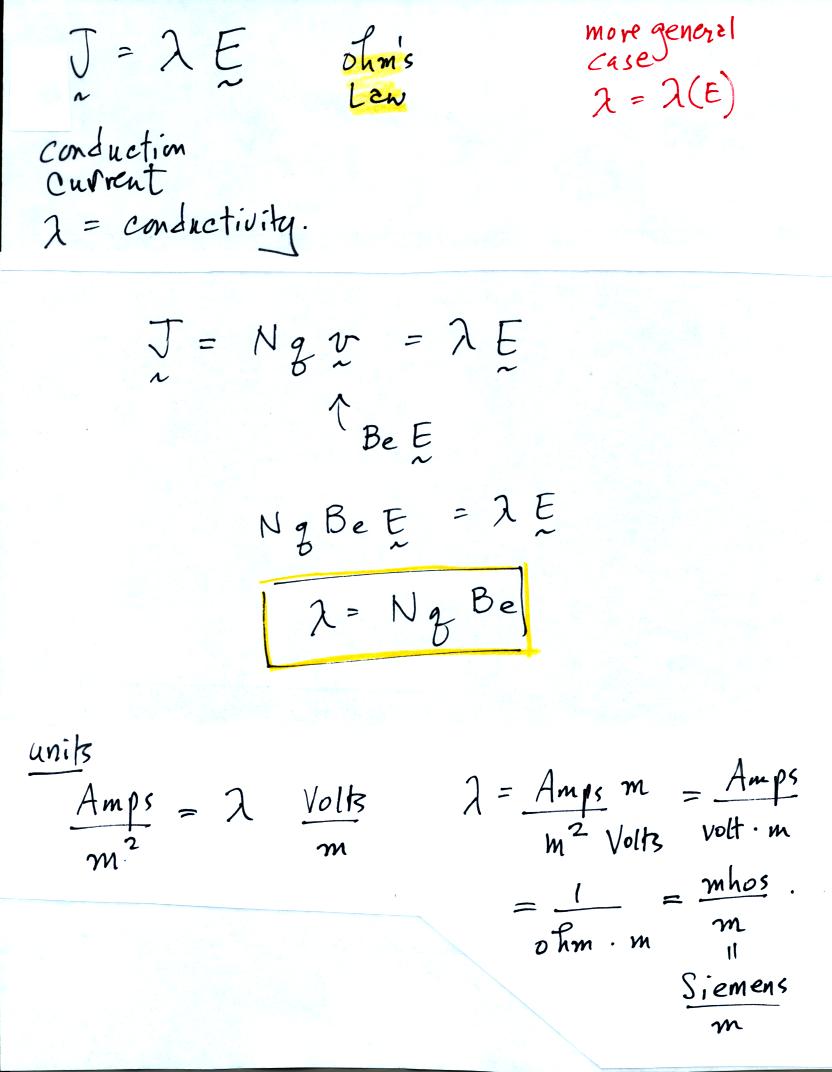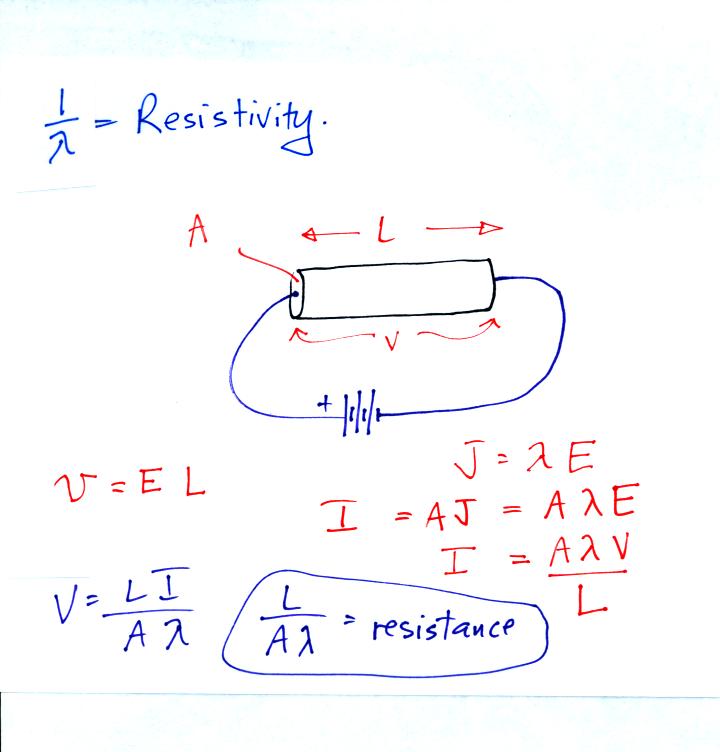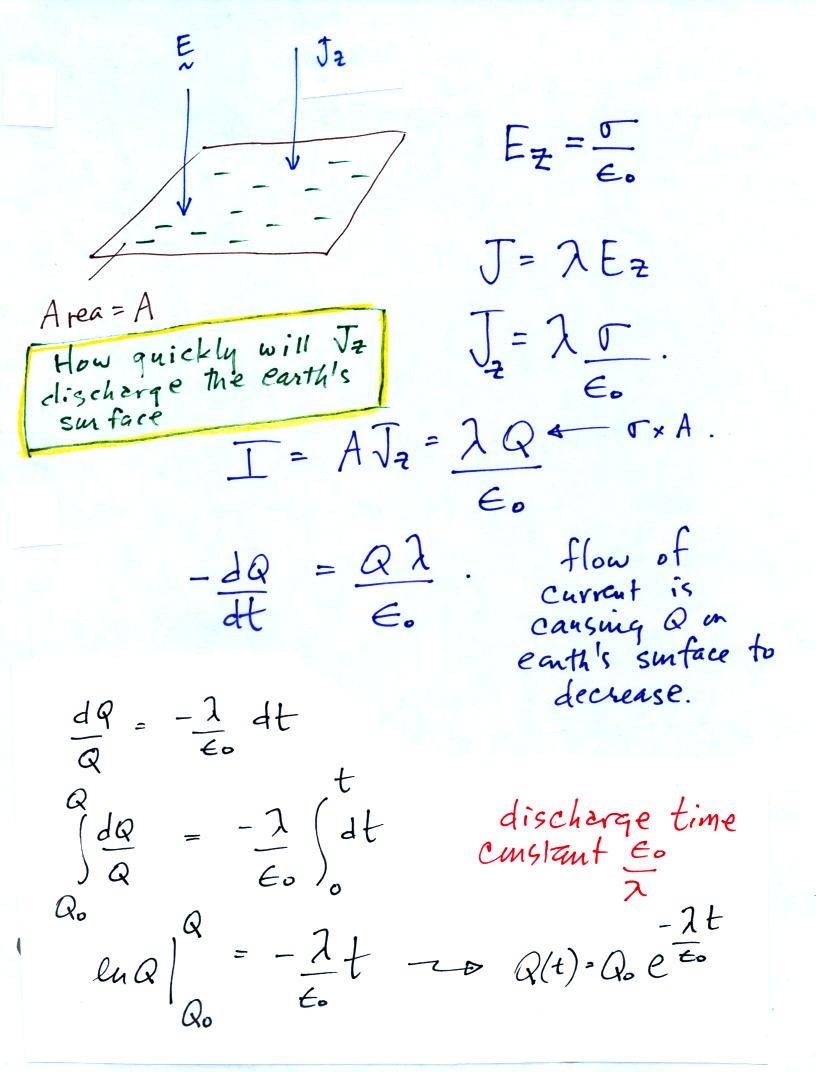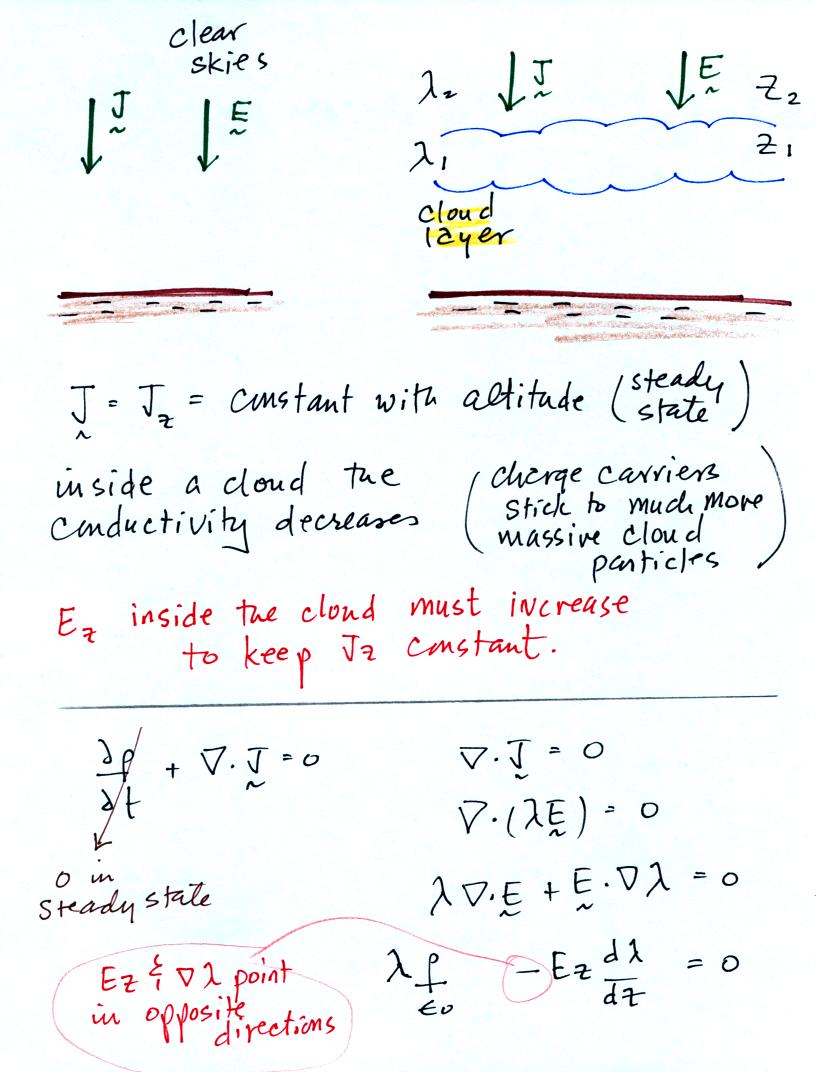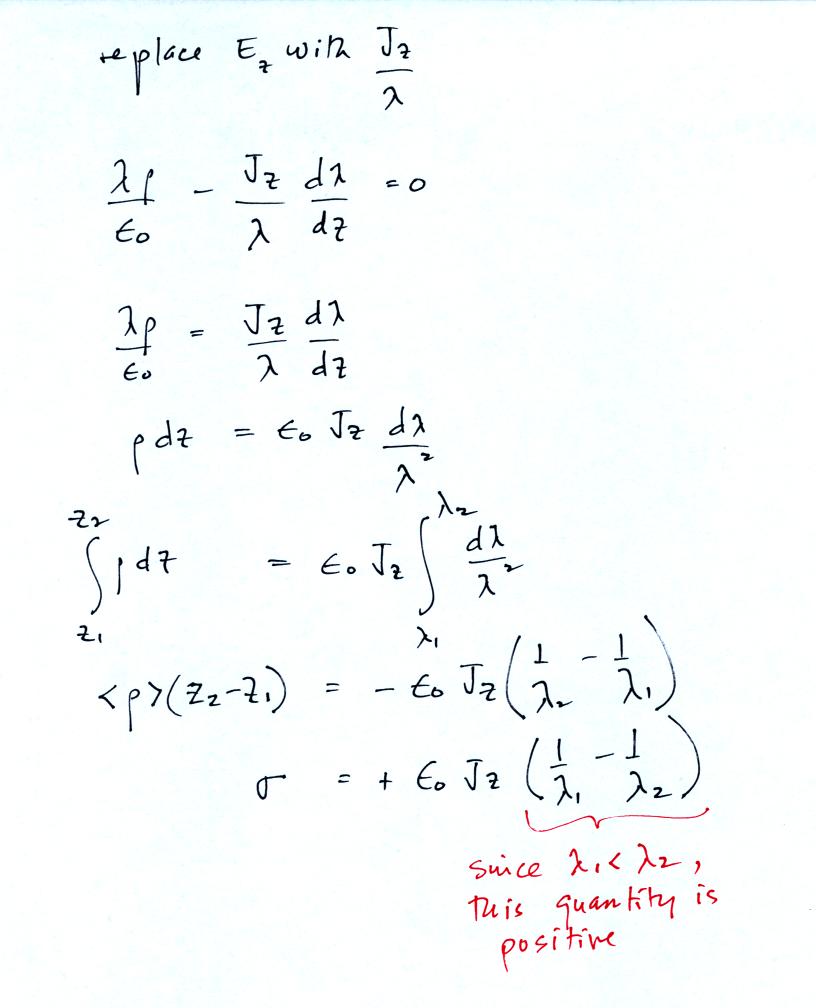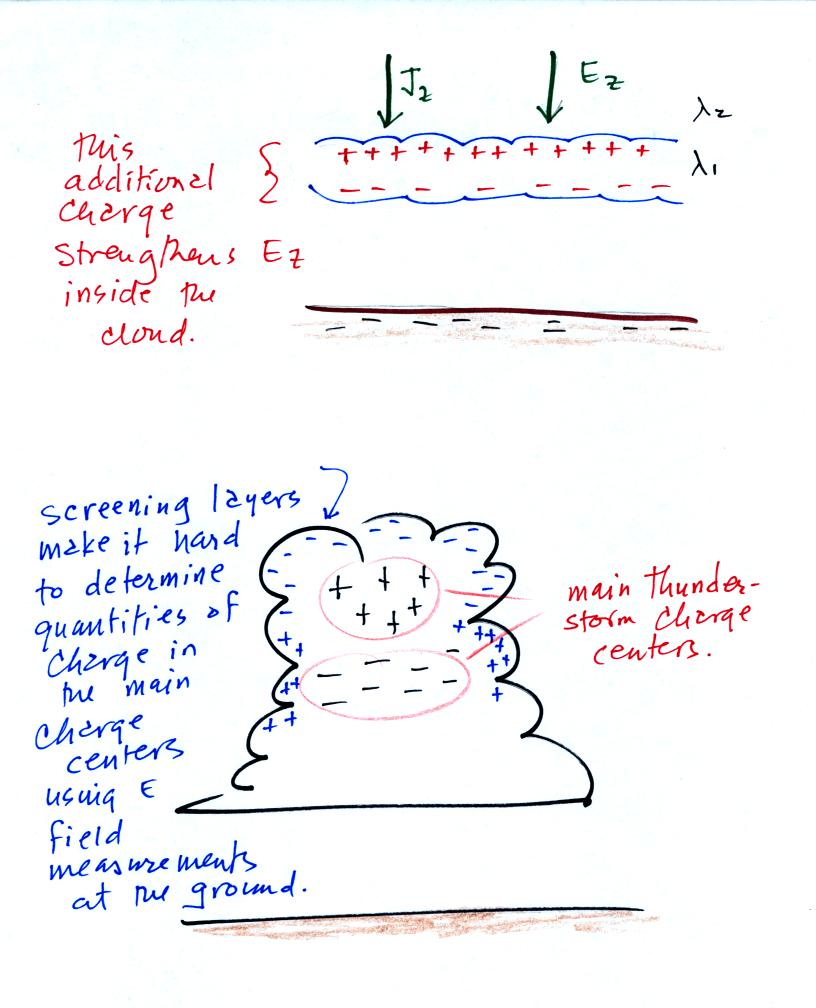Tuesday Feb. 3, 2009
Sorry about taking so long to get today's notes online.
We leave the electrostatic stuff behind and today look at currents in
the atmosphere.
In the atmosphere we normally speak of a current density
(Amps/square meter) rather than current. Positive and negatively
charged small ions transport charge in air (just the free electrons
carry charge in a wire). Small ions are charged nitrogen and
oxygen molecules that are surrounded by water molecules.
In a conduction current, the charge carriers drift at a velocity
equal to the product of electrical mobility and electric field.
The random thermal velocities are much larger. Convection
currents can also potentially be larger than conduction currents.
An expression for current density.
The material on the next two figures is in a little bit different order
than covered in class.
Current density is equal to the conductivity multiplied by the electric
field. We will assume that conductivity is independent of
electric field strength. You can use the Ohm's law expression and
an earlier result for current density to come up with an expression for
conductivity.
The mhos/m units for conductivity have been replaced by Siemens/m.
The relationship between resistivity and resistance.
Below are resistivity of common materials.
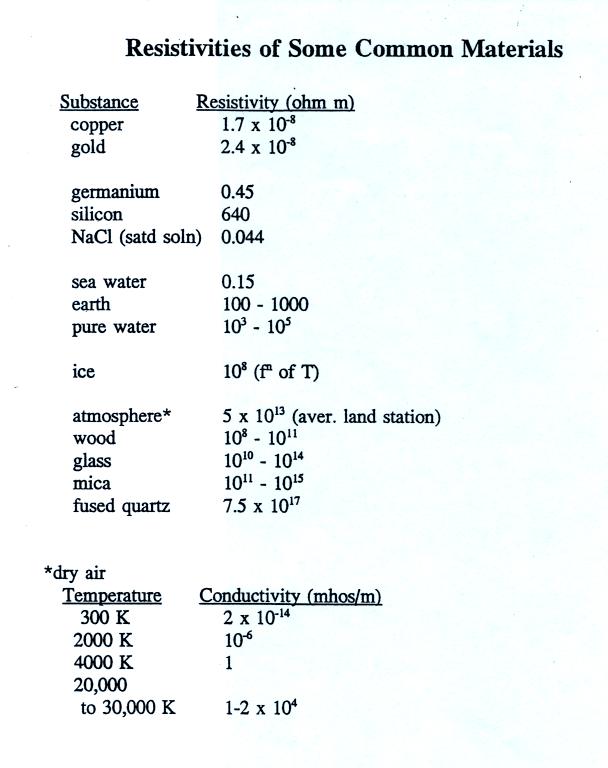
Note how the conductivity of air is a function of air
temperature.
Here is a better estimate of how quickly a fair weather current
would neutralize the negative charge on the earth's surface than was
done of the first day of class.
An
important example problem showing what happens along an air-cloud
boundary where there is an abrupt change in conductivity.
Conductivity inside a cloud is lower than in the air outside a
cloud.
Surface charge builds up along the air-cloud boundary.
Charge along the could edges intensifies the electric field inside
the cloud. The product of higher field times lower conductivity
is able to keep the current density constant with altitude.
Screening layers that form along the edges of a thunderstorm
effectively mask the main charge centers inside the cloud.
